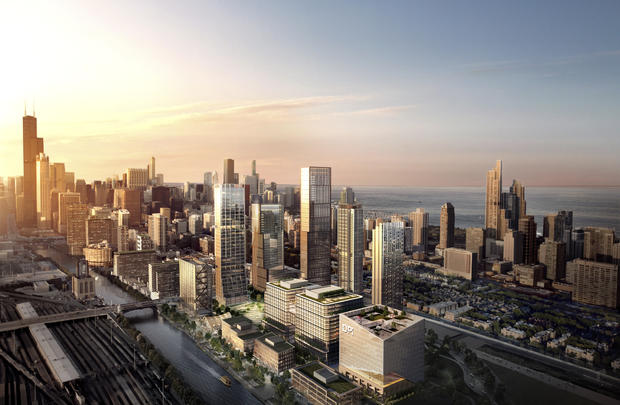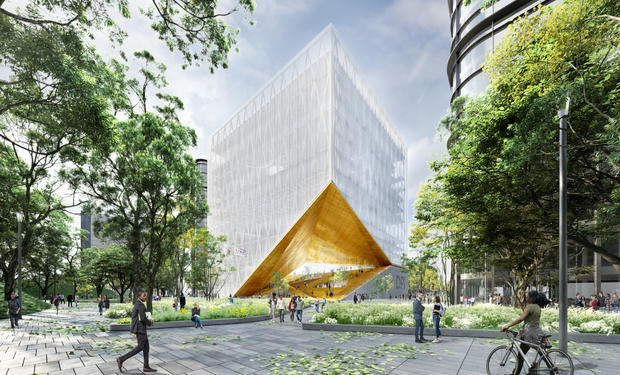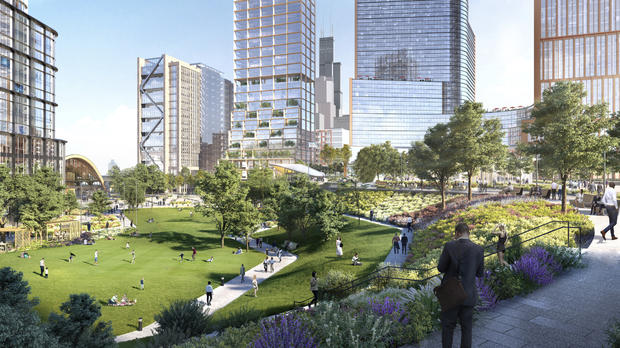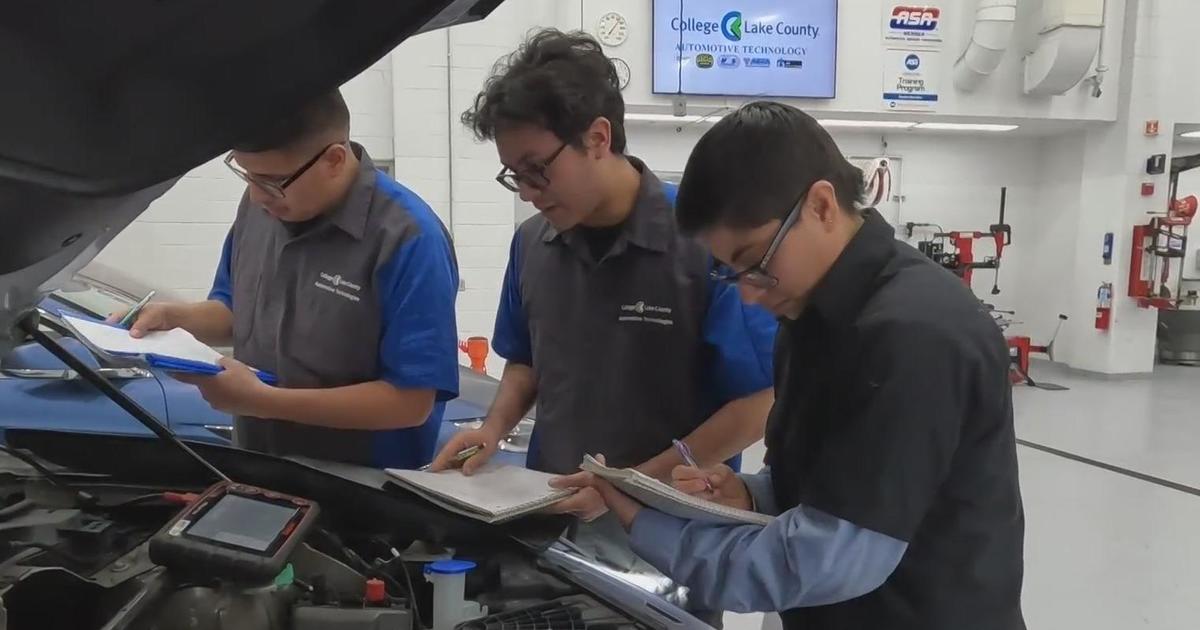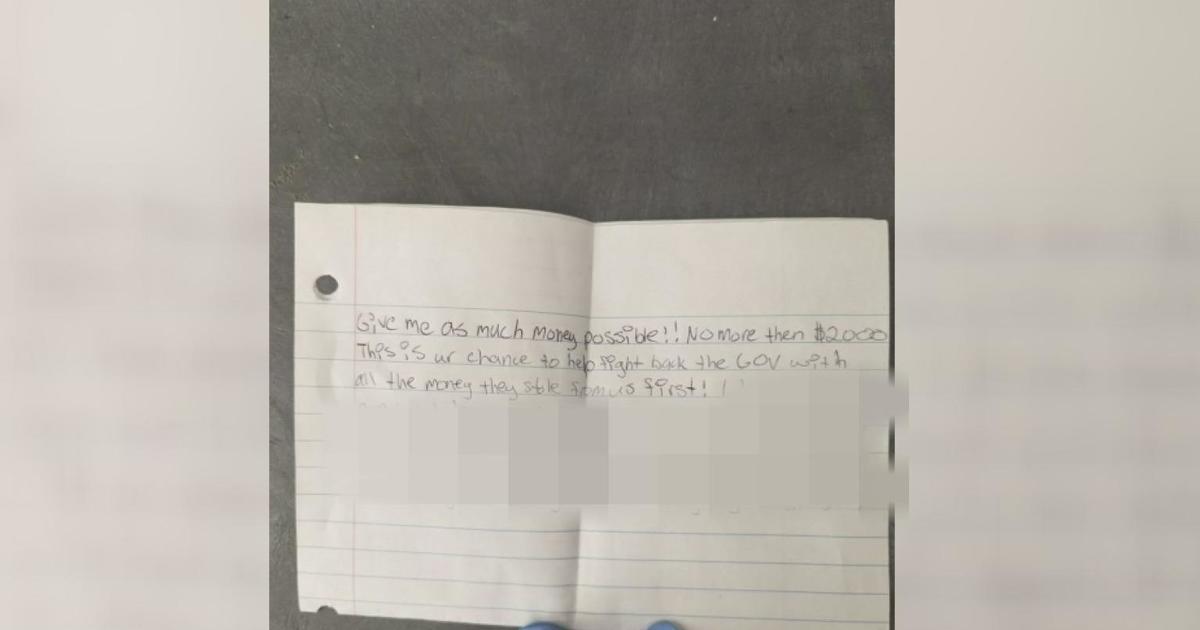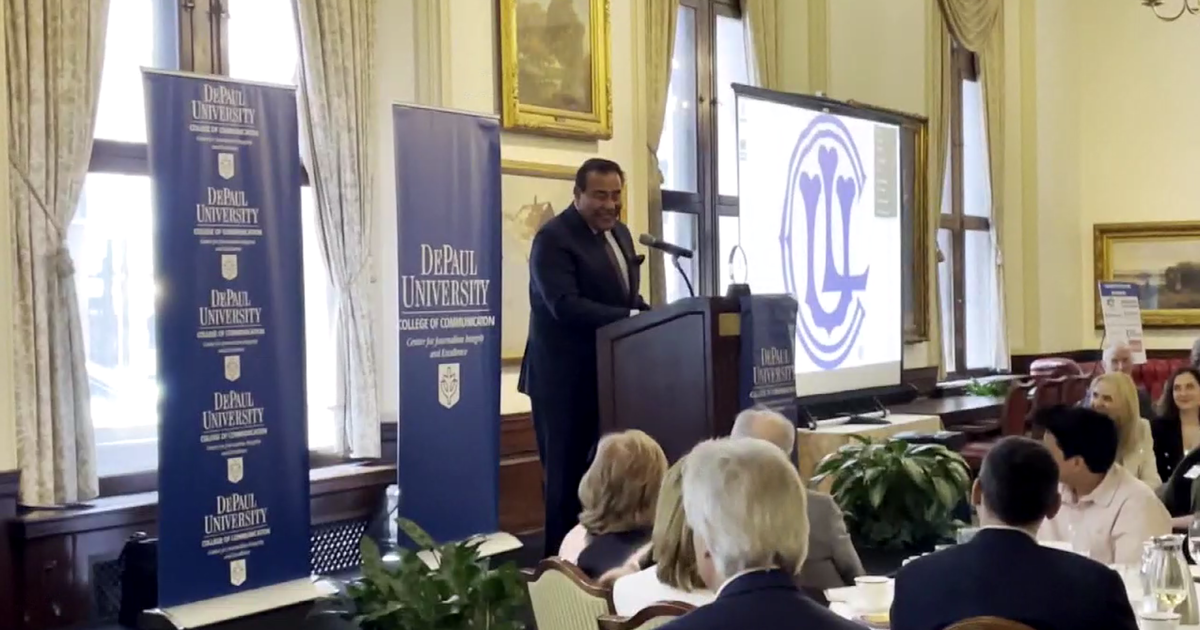University Of Illinois Research Hub To Anchor First Phase Of The 78, As Massive Project Gets $500 Million In Funding From The State
CHICAGO (CBS) -- Construction on the first major piece of The 78 megadevelopment in the South Loop should begin later this year, after Gov. JB Pritzker announced the release of $500 million in capital funding for the Discovery Partners Institute (DPI), a research hub led by the University of Illinois.
DPI will be the anchor of the first phase of the $7 billion 62-acre project, which will be built along a vacant stretch of land on the east bank of the Chicago River between the South Loop and Chinatown.
The University of Illinois plans to build a 500,000-square foot headquarters for DPI as the centerpiece for the first phase of The 78. Construction of the center is expected to be completed in 2024.
The center would focus on specialized research in computing, big data, food and agriculture, and health and wellness. Project leaders envision DPI as the hub of a statewide research network known as the Illinois Innovation Network (IIN).
"We are launching a new era for Chicago as an extraordinary focal point for an unparalleled tech workforce and research and development that will attract talent to our state from around the world, strengthening Illinois' long-term economic vitality for generations to come," Pritzker said at a Wednesday morning news conference to announce the funding for DPI.
DPI also will partner with Argonne National Laboratory and several public and private universities, including Northwestern University, the University of Chicago, and the Illinois Institute of Technology.
The research campus is expected to generate 48,000 "new economy" jobs over the next 10 years. Mayor Lori Lightfoot said it also will help keep talented University of Illinois engineering and technology students in Chicago.
"This project can be a game changer for all we want to accomplish in this city," she said. "We are literally standing on a field of possibilities. Building the DPI campus here in The 78 -- a site that has sat vacant for way too long -- is a very important opportunity for our city now, but also for the future; education, technology, entrepreneurship, transportation, housing, and infrastructure all right here, all reinforcing each other, and all just a short distance from the heart of our downtown and a short drive from our neighborhoods."
The $500 million in capital funding from the state was approved last year, but the governor did not release the funding until the University of Illinois received $230 million in commitments for matching private funding for the project. Pritzker said he expects the university will be able to raise at least $270 million more in private donations for DPI and IIN.
In addition to the research hub, the first phase of the massive development plan known as The 78 will include 1.5 million square feet of office space, 700,000 square feet of housing, and 100,000 square feet of commercial and retail space, and 8 acres of public park space; mostly on the north end of the site. The first phase is expected to be completed by 2024.
Related Midwest president Curt Bailey said the first phase of The 78 is expected to create 9,500 trade and construction jobs and 9,000 permanent jobs.
Overall, the project is expected to include 13 million square feet of office, residential, commercial, and park space. It also will include a new 15th Street bridge, a CTA Red Line station at 15th and Clark streets, a new stretch of the Chicago Riverwalk between the South Loop and Ping Tom Park, and a new enclosed water taxi station on the Chicago River.
Of the 10,000 residential units expected to be built on the site, at least 2,000 will be set aside for affordable housing.
Officials said, overall, The 78 is expected to create 15,000 construction jobs and 24,000 permanent jobs, and to generate $40 billion in economic activity over the next 30 years.
Related Midwest also has secured $700 million in tax increment financing subsidies from the city. That funding will be used to reimburse the developer for infrastructure work -- such as new roads, bridges, and more -- that will be part of the ambitious construction plans.
Last year, Lightfoot announced the city would form a community advisory council to allow for public input on The 78 as the project moves forward. On Wednesday, she said the council has not started meeting yet, but she expects to soon announce who will be serving on the council.
"We are in the process of identifying people who will populate those councils. We're working with the aldermen to make sure that that process moves smoothly," she said. "We're anxious to get that process up and running as quickly as possible."
Meantime, Pritzker also thanked former Mayor Rahm Emanuel for his work on DPI, which was first announced two years ago. The governor said Emanuel started calling him about the plans for the research hub even before Pritzker was elected governor in 2018, "and he hasn't stopped calling."
"Rahm can be relentless when he wants something done," Pritzker said. "He said that DPI would anchor an ecosystem of tech growth, and would become an unparalleled engine of opportunity for our state. In addition to my gratitude for his support for this project, I'm grateful that the many phone calls from him might now subside."
